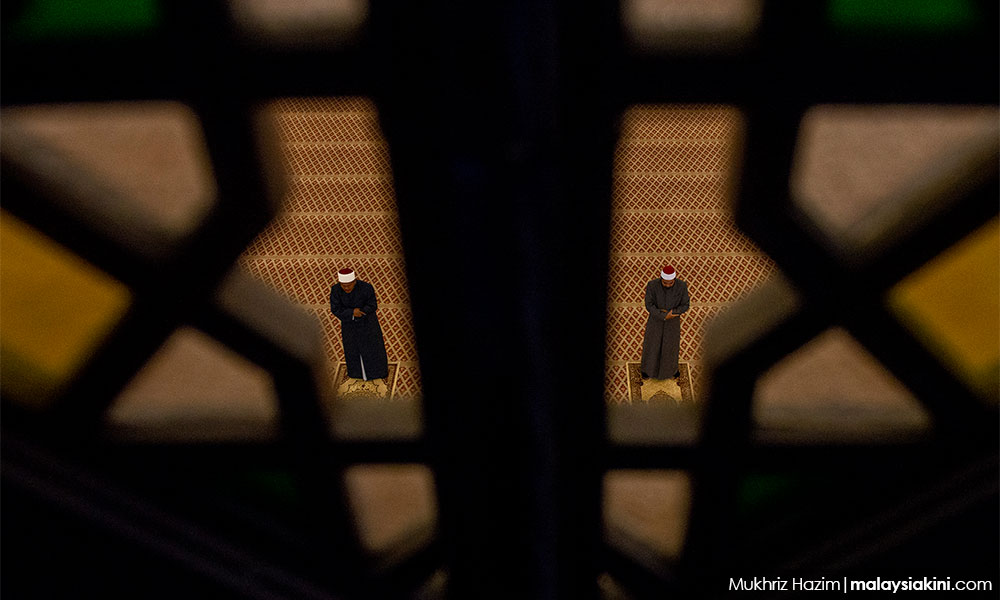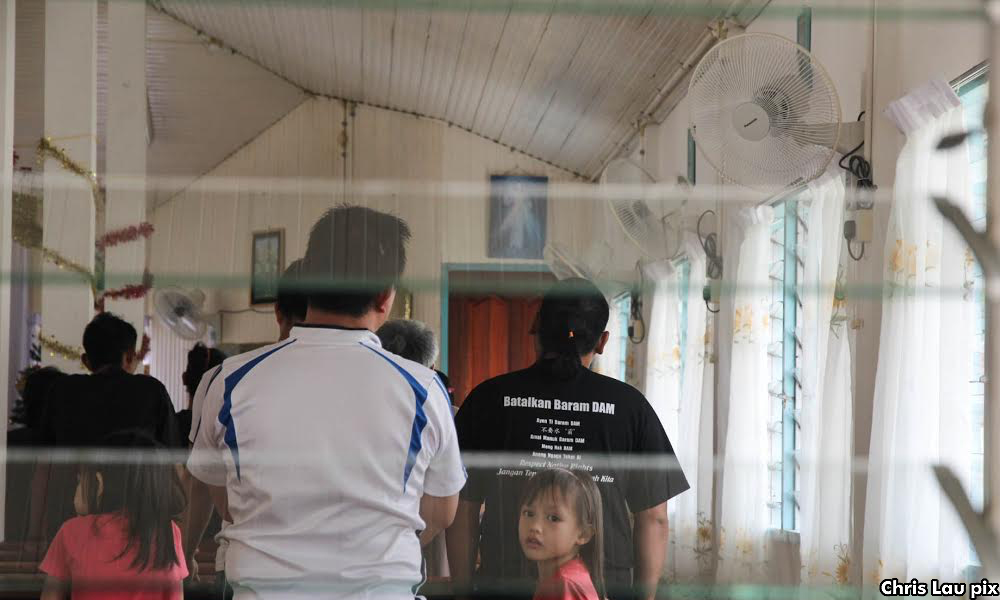'Allah' issue should not divide us
I had never, ever heard the word "Allah" when attending my English-speaking church at a (then) small town called Seremban in the 1980s.
The first time I heard that word used for God was when I attended a Christian fellowship event linked to my university days in Kuala Lumpur. It was the first time I had seen Bahasa Malaysia (BM) hymns being used as part of the programme.
All this while, BM was just a language that I “had to” get a credit-level score in my SPM examination. Despite being educated for 13 years in the national language, I still felt little affinity for it (okay, except for Apo Nak Di Kato, a hit Malay song sung in the Negeri Sembilan dialect).
The 1980s was an era of sharp racial tensions. Unlike nowadays, there were few private colleges then and we were under immense pressure to squeeze into the “Chinese quota” for public universities or face an uncertain future. As students, the big topic was all about the unfairness of being “bullied” by a system where the leaders spoke "an alien language".
Although we were supposed to be “above” racial issues as Christians, it was not uncommon to be sucked into the more earthly spirit of the times. This included the famous 1982 “Seremban showdown”, the ultimate battle between then MCA president Lee San Choon and DAP chairperson Dr Chen Man Hin with the talk all about MCA “proving” it could contest a “Chinese seat” instead of “hiding under Umno’s skirt” in Malay-majority areas.
It was hard not to be coloured by racial or religious prejudices. Heck, in my conservative Protestant church, there was antipathy even towards other Christians such as Catholics (“Eeyer, they all worship Mary one”) and Charismatics (“Speaking in tongues is Satanic, you know?”).
So it was a refreshing jolt to have Malay Christian songs at that university fellowship.
All this while, as a “banana Chinese", my main language had been English. But when singing heartfelt songs in Malay, I began to feel that BM, too, could also be “my language” and not just some inconvenience to pass exams or to fill government forms.
It also challenged me to reconsider racial prejudices. Was Allah also “my” or “our” God? Was there some message (from on high?) that maybe we should not have all these religious divisions and aversions?
As 53 members of parliament and state assemblypersons from Sabah and Sarawak recently stated, “It is a blessing that all Malaysians can pray to Allah in mosques, churches and (Sikh) gurdwaras.”

The politicians, from both the government and opposition, added that the people of Borneo, both Muslims and Christians, “[...] genuinely believe that humans are made differently to know and love each other, not to disparage and discriminate against each other, and that presence of diverse religious communities is Allah’s will for He who is Almighty could have made all humans in one faith.”
They noted that God was called Allah not only in the Malay language but also in different Sarawakian tribal languages. For example, in Iban, God is called Allah Taala while in Bidayuh, it’s Tuhan Alla. Other groups such as the Lun Bawangs, Lun Dayehs and Kelabits use the term Tuhan Allah for God.
Semitic language
English-speaking Christians in Peninsular Malaysia who may feel detached from this issue may also be surprised that they have come close to using the word Allah. For example, some songs and prayers will use the word Elohim which is one of the Hebrew (the language of the Jews) words for God of which another version is Eloah. The similarity between Eloah and Allah should not be surprising because Hebrew and Arabic are part of the same language family.
What about Aramaic, the language that Jesus himself spoke? When I visited Syria in March 2011 just before the protests (and later, the civil war) broke out, part of the programme was to visit a village, one of the few places left on Earth where people still spoke this ancient language.
I asked the elderly man who showed us around, “How do you call God’s name?” After our guide and translator conveyed the question, the answer came: "Elah". I was struck then that this sounded almost like “Allah” and the reason is that Aramaic is also a Semitic language, just like Arabic.
It’s well known that Christians in the Middle East have been speaking Arabic for centuries and they pray to Allah without anyone declaring that the word is for the exclusive use of Muslims.
Some leaders claim that local Muslims may be “confused” and perhaps slip into the clutches of the church if Christians here use the word. But why is it that Middle Eastern Muslims are able to keep their faith when they hear Christians there pray to Allah?
Or is all this a wedge issue stirred up by some “political entrepreneurs” from some parties who are “competing with each other for one-upmanship in Muslim nationalism”? This was the claim made by political party Upko, a former BN member from Sabah. They added that the “politicisation of religion” seemed to be an issue mainly in Malaya (Peninsular Malaysia), not in East Malaysia.

“Come to Sabah and Sarawak once interstate travel is permitted and see for yourself how interfaith families celebrate each other’s festivals without fear of being converted,” said Upko.
I now consider myself more of a Buddhist. But I still find it strange that Christians and Muslims, who both regard Abraham (Ibrahim) and Moses (Musa) as patriarchs, should argue about His name. I wonder, aren’t both groups supposed to be worshipping the same God? The one true God?
Or is it, as an old friend of mine aptly puts it, “Many who affirm the fatherhood of God, strenuously deny the brotherhood of man”.
Sabah and Sarawak are well known for their more harmonious racial relations compared to Semenanjung. And in my own Peninsular Malaysian experience, by singing the above-mentioned hymns, I felt closer to the Malay language and questioned my own racial bias. Maybe somebody up there was trying to tell me something?
Forget the politicians who keep singing their tired old song that we must remain separate and suspicious of each other so that they can keep their exclusive franchise of “saving” and “defending” us from each other!
The issue over Allah does not have to divide us. Instead, it should remind us of our shared humanity, unite us in tackling the more urgent challenges facing this country and be kind and caring to all. - Mkini
ANDREW SIA is a veteran journalist who likes teh tarik khau kurang manis. You are welcome to give him ideas to brew at tehtarik@gmail.com.
The views expressed here are those of the author/contributor and do not necessarily represent the views of MMKtT.
✍ Credit given to the original owner of this post : ☕ Malaysians Must Know the TRUTH
🌐 Hit This Link To Find Out More On Their Articles...🏄🏻♀️ Enjoy Surfing!




















Post a Comment